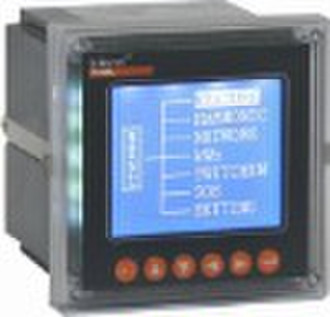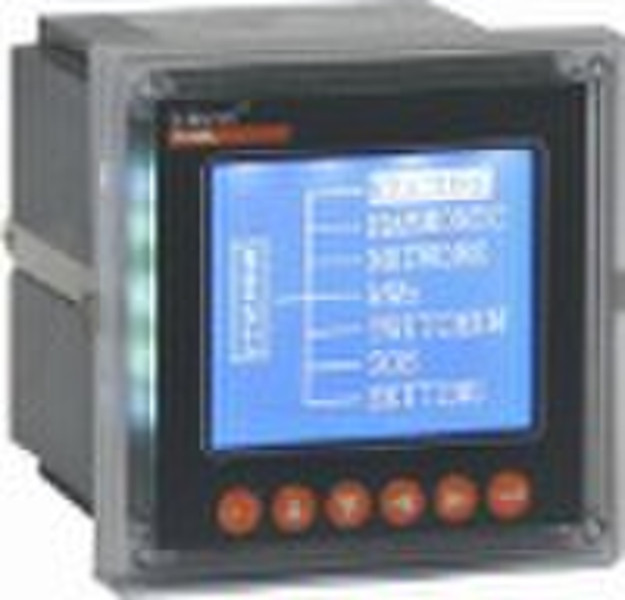Catalog
-
Catalog
- Agriculture
- Apparel
- Automobiles & Motorcycles
- Beauty & Personal Care
- Business Services
- Chemicals
- Construction & Real Estate
- Consumer Electronics
- Electrical Equipment & Supplies
- Electronic Components & Supplies
- Energy
- Environment
- Excess Inventory
- Fashion Accessories
- Food & Beverage
- Furniture
- Gifts & Crafts
- Hardware
- Health & Medical
- Home & Garden
- Home Appliances
- Lights & Lighting
- Luggage, Bags & Cases
- Machinery, Hardware & Tools
- Measurement & Analysis Instruments
- Mechanical Parts & Fabrication Services
- Minerals & Metallurgy
- Office & School Supplies
- Packaging & Printing
- Rubber & Plastics
- Security & Protection
- Service Equipment
- Shoes & Accessories
- Sports & Entertainment
- Telecommunications
- Textiles & Leather Products
- Timepieces, Jewelry, Eyewear
- Tools
- Toys & Hobbies
- Transportation
Filters
Search

Harmonic Analyzer
original price: 218,70 USD
Shanghai, China
Production capacity:
100000 Piece / Year

Michel HUA
Contact person
Basic Information
| Display Type | Digital Only |
|---|---|
| Phase | Three Phase |
| Place of Origin | Shanghai China (Mainland) |
| Brand Name | ACREL |
| Model Number | PZ96L-3EH |
| Measuring Energy Range | 9999999 |
| Accuracy Class | 0.5 |
| Output Voltage | 110V/220V |
| Operating Temperature | -20C ~ +55C |
| Dimensions | 96*96*85mm |
1. General PZ96L-3EH is one of multifunction analyzers, and it can measure all the data of electrical network. At the same time, they can measure more than 31th harmonics and display the harmonics by bar graphic and by wareform. According to crest factor, K factor, THFF etc., the user can analyze the power quality of electrical network. It complies EN 61326:2006 and EN 61010-1:2001 and RoHS Directive 2002/95/EC. - Communication and programming via optical interface, or remotely via RS485 output - Energy: measurement import kWh, kvarh, kva and export kWh and kvarh in class 0.5 - Display of harmonics by order to 31st - Display of harmonics by bar graphic and by wareform - Up to 4DI & 2DO configurable, one DO can be used as Alarm. - 16 SOEs - Possibility of upgrading the embedded software via the optical interface - Graphic display: Fresnel diagram, harmonics in bar graph form, U, I displayed as gauges 2. Technical Feature - Measurement: VL1, VL2, VL3,VL12, VL23, VL31,AL1, AL2, AL3, ∑AL, F, ∑P, P1,P2,P3, ∑Q, Q1,Q2,Q3,∑S, S1,S2,S3,∑PF, PF1,PF2,PF3, MD kW, MD kvar, MD kva, +kWh, +kvarh, kvah, -kWh, -kvarh, 31 harmonics, CF,THFF,KF,UF,UPEAK,UVECTOR,IVECTOR - Network: 1P2W, 3P3W, 3P4W - Frequency 45 65Hz - Normal: AC 100V, 400V; Overloading: 600V(continuous), 1000V / 30s; Consumption: < 0.2VA - Current: AC 1A, 5A; Overloading: 6A(continuous), 50A /10s; Consumption: < 0.2VA - Accuracy Frequency 0.01Hz, reactive energy 1 class, others 0.5 class - Display: LCD - Power supply: AC/DC 85 270V; consumption: < 4VA - Isolation: Power / current input / voltage input: AC2kV/1min;Power / logic inputs / RS485: AC1.5kV/1min; Inputs / outputs / housing > 5MΩ - Working T: -20C +55C; Storing T: -30C +70C - Relative humidity: 5% 95% Non-Condensing; - Altitude: < 2500m - Harmonics Individual to 31st order - Norms: IEC61000-4-2: 1995 Electrostatic discharge immunity test Level 3 IEC61000-4-3: 1995 Radiated, radio-frequency, Level 3 IEC61000-4-4: 1995 Electrical fast transient pulse immunity test Level IEC61000-4-5: 1995 Surge immunity test Level 3 3. Options: - /P: Pulse output Opt coupler pulse output - /C: Communication RS485 (Modbus-RTU) - /K: Logic input (DI) 4 drying contact inputs, with +5V power; Logic output (DO) 2 NO contacts (AC 250V/3A, DC 30V/3A) 4. Power Quality Parameters Explanation - CREST FACTOR: The Crest Factor is equal to the peak amplitude of a waveform divided by the RMS value. The purpose of the crest factor calculation is to give an analyst a quick idea of how much impacting is occurring in a waveform. - THFF (Telephone Harmonic Form Factor): The harmonic interference may cause noise in the system and in uence the quality of communication; our hearing and the telephone cannot respond well to the 50Hz current and voltage but can respond better to about 1KHz current and voltage. In Europe, CCITT detects harmonic interference to telecom with Pn, then gures it with THFF. It is 0 with no harmonic. K-factor is a weighting of the harmonic load currents according to their effects on transformer heating, as derived from ANSI/IEEE C57.110. A K-factor of 1.0 indicates a linear load (no harmonics). The higher the K-factor, the greater the harmonic heating effects. - UNBAL FACTOR: (Unbalance factor) To look at the current and voltage unbalance factor. In a 3-phase distribution, if the current or voltage RMS are not the same or the di erence between a 3 phase angle is not 120 degrees, we call the phase voltages or current unbalance. The unbalance voltage or current of 3-phase can be divided into positive component, negative component and zero component. - V PEAK: (The Peak Voltage) Peak voltage is the highest level of volts from an alternating current. For example, in the UK the mains supply to a house is 230RMS. 230 volts is the average (simpli ed) you will get from the AC supply. But in reality the AC wave switches between -320 and 320 volts. So 320 is the peak voltage. - V VECTOR: (The voltage vector) Widely-used in European standards, the first definition originates from the theory of Symmetrical Components which mathematically breaks down an unbalanced system into three balanced systems. - I VECTOR: (The current vector) To look at the positive component, negative component and zero component. The Screen displays: +I1, -I2, N.
Delivery terms and packaging
Packaging Detail: PACKED BY CASE Delivery Detail: 2 WEEKS
Port: SHANGHAI
Payment term
Letter of credit
Telegraphic transfer
-
Payment Methods
We accept:








